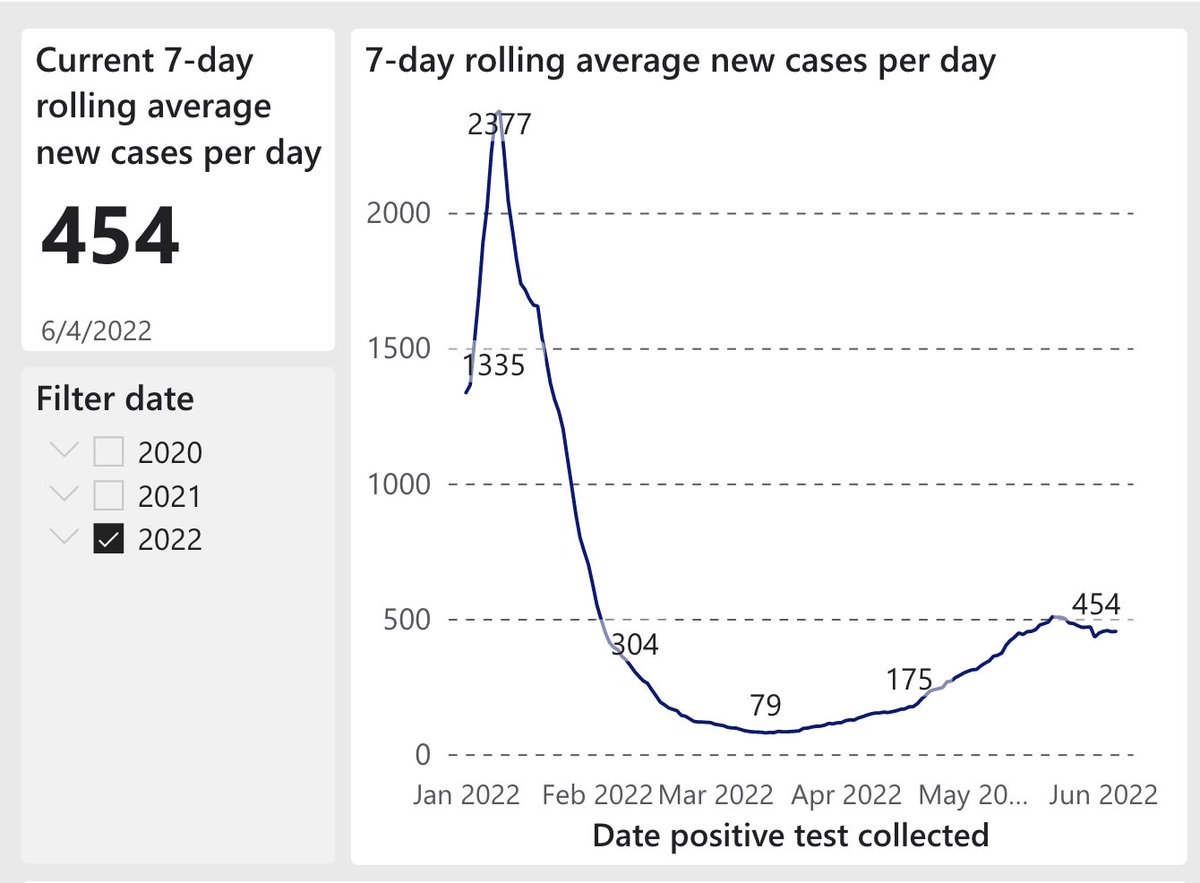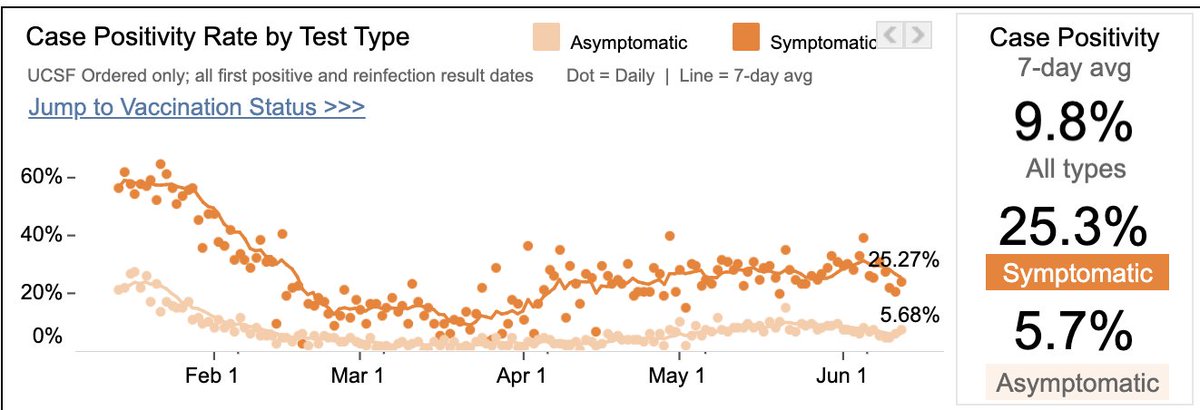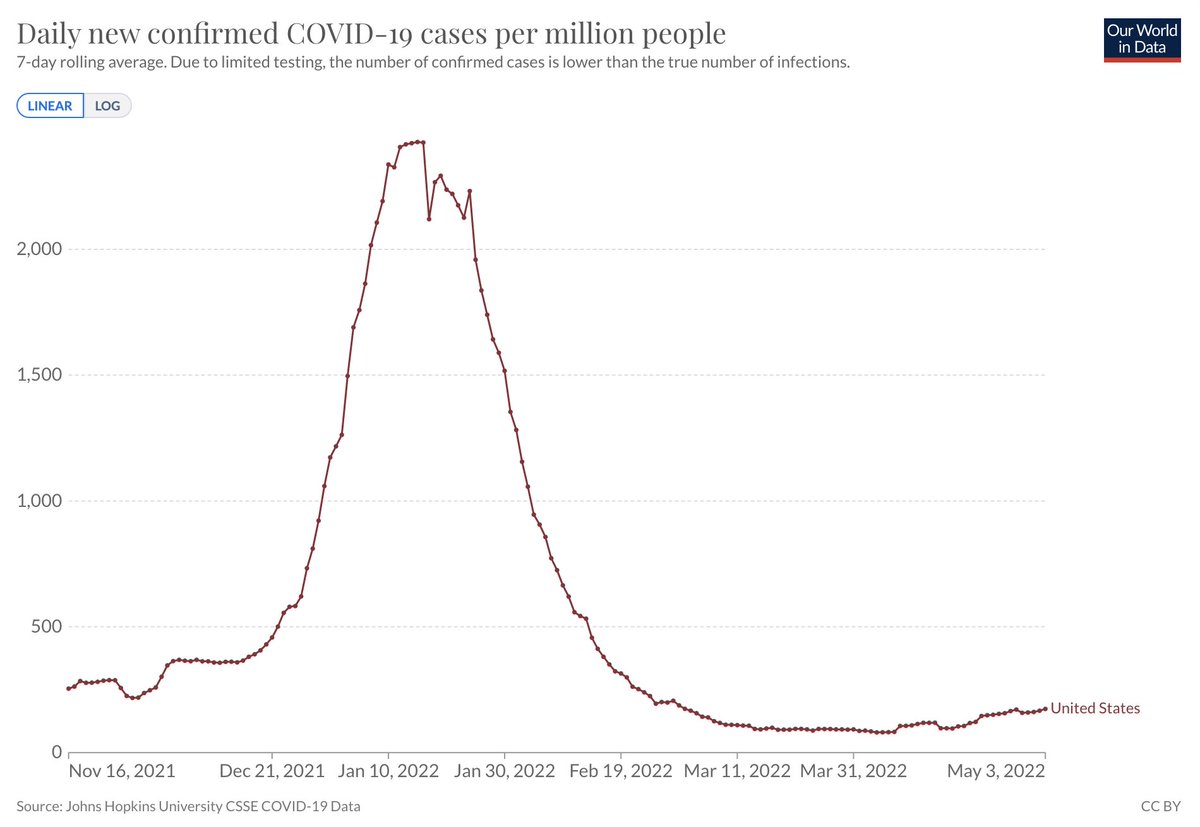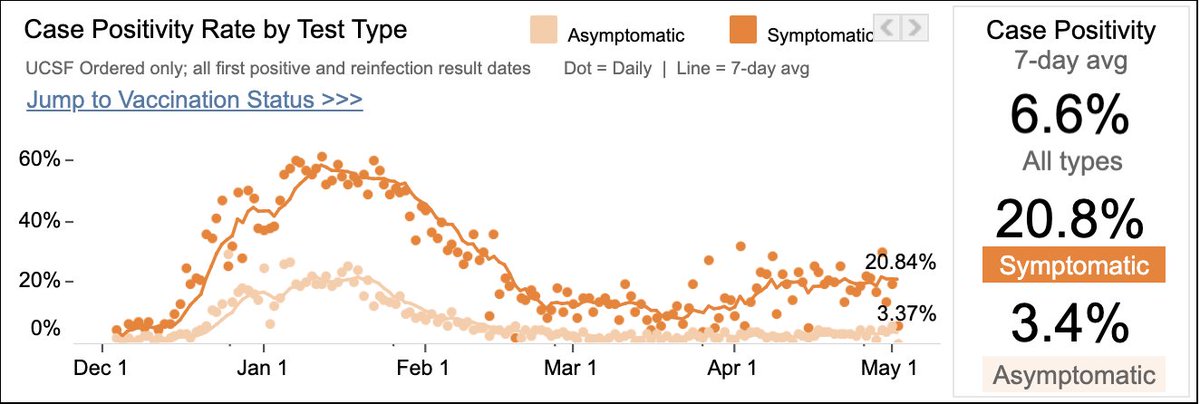
Covid (@UCSF) Chronicles, Day 848
It’s been a few weeks since my last update – the flow of Covid news & research has slowed a bit. But there’s still plenty of questions that come up, so in this🧵I’ll answer a few that I get asked commonly, including how my wife is doing. (1/25)
It’s been a few weeks since my last update – the flow of Covid news & research has slowed a bit. But there’s still plenty of questions that come up, so in this🧵I’ll answer a few that I get asked commonly, including how my wife is doing. (1/25)
Many people ask how my wife @katiehafner fared after her Covid case – we truly appreciate the concern.
The answer is: not great. Now 5 weeks post-infection, Katie has pretty bad fatigue, some brain fog, & periodic headaches. So, according to the most common definition of…(2/25)
The answer is: not great. Now 5 weeks post-infection, Katie has pretty bad fatigue, some brain fog, & periodic headaches. So, according to the most common definition of…(2/25)
…Post-Acute Sequelae of SARS-CoV-2 (PASC) (AKA, Long Covid), she now has it (though @WHO criteria is >2 months of symptoms).
Whatever the definition, it sucks – she’s an amazingly high energy person, & now she's wiped out most afternoons.
What have we learned about LC? (3/25)
Whatever the definition, it sucks – she’s an amazingly high energy person, & now she's wiped out most afternoons.
What have we learned about LC? (3/25)
A recent meta-analysis found ~40% of people have at least 1 symptom months after a case of Covid. Subtracting out the significant fraction of the general population with symptoms like fatigue, the attributable prevalence is probably more like 20%.(4/25)
cidrap.umn.edu/news-perspecti…
cidrap.umn.edu/news-perspecti…
The prevalence is lower if the initial case was mild, & a bit higher in women than men. Until recently, we thought vaccination lowered chances of Long Covid by 50%. But a recent study of breakthrough infections found only a 15% protective effect. (5/25) nature.com/articles/s4159…
Of course, even good odds are no guarantee: Katie had a fairly mild initial case, and was fully vaxxed & double boosted. Yet here we are, with symptoms that are unpleasant every day, and on some days truly interfere with her ability to work. (6/25)
Does Paxlovid Rx for acute Covid lower the risk of Long Covid? We really don’t know. We DO know that Pax treatment lowers the rate of hospitalizations. I had hoped that Pax might also lower the risk of LC by quickly reducing the viral load. But Katie had rebound after…(7/25)
…she finished her Pax (there’s still virtually no data on Pax rebound – cause? prevalence? how to avoid?), which left me less confident that it might help prevent LC. In fact, I now wonder whether her rebound increased her odds of LC? No way to know, but crucial to study. (8/25)
As for treatment for Long Covid, there are lots of anecdotes (including [below], from my colleagues @UCSF, that a course of Paxlovid given to people with LC might work) but we still need a lot more data to be sure. (9/25) ucsf.edu/news/2022/05/4….
How about the spate of studies that came out a few months ago pointing to higher long-term rates after Covid of heart attack, stroke, diabetes, blood clots, and even shrinking brain? I keep hoping... (10/25) nature.com/articles/s4159…
nature.com/articles/d4158…
nature.com/articles/s4158…
nature.com/articles/d4158…
nature.com/articles/s4158…
... that someone will discover a methodologic flaw in these studies, since the findings are frightening. While there’s always a risk of confounding (ie, that someone with undiagnosed diabetes or heart disease is more susceptible to Covid, so it’s really effect→cause… (11/25)
… rather than cause→effect), at this point I find the overall conclusions credible, and thus I'm unable to talk myself out of these two disconcerting premises: (12/25)
1) Tens of millions of people with Covid will have ongoing symptoms that interfere with quality of life; in some they’ll be disabling, &
2) A Covid infection may significantly increase the long-term risk of non-infectious problems like heart attacks, diabetes, & dementia. (13/25)
2) A Covid infection may significantly increase the long-term risk of non-infectious problems like heart attacks, diabetes, & dementia. (13/25)
I’m totally aware of what a bummer this is, & how nice it would be to wish Long Covid away. But I can't.
While we fret, let's also celebrate some great news: the risk of acute Covid (hospitalization/ICU/death) has become, for the vast majority of vaxxed/boosted people,… (14/25)
While we fret, let's also celebrate some great news: the risk of acute Covid (hospitalization/ICU/death) has become, for the vast majority of vaxxed/boosted people,… (14/25)
…such a low-probability event that, in a clear-eyed risk assessment, it barely registers. Below is CDC data showing that the risk of death for someone vaxxed & boosted is 0.1/100,000. Driving is riskier.
(Of course, if you’re not vaccinated the risk remains quite real.)(15/25)
(Of course, if you’re not vaccinated the risk remains quite real.)(15/25)

So that’s our current conundrum: a dramatically lower risk from acute infection, coupled with uncertain but very real long-term risks – both layered atop 2.5 years of changing science, partisanship, and misinformation. No wonder people are exhausted and want to move on! (16/25)
And there’s a problem in how humans weigh risks: we are far better at processing acute risks than chronic ones. There’s no analog to the daily death count to illustrate Long Covid's toll; no abnormal blood test or x-ray to accompany (and, to some, validate) the symptoms.(17/25)
And, as for a heart attack or stroke or cognitive decline whose risk was increased by Covid….Well, it’s impossible to know – in any individual case – that Covid had anything to do with it. The risk is remote and probabilistic, which means it’s mostly going to be ignored. (18/25)
With all of this in mind, how am I living my life?
Since 2021, I’ve used a threshold of <10-20 cases/100K/day in a region to “let my guard down” (mostly meaning resumption of indoor restaurant dining and not wearing a mask in crowded indoor spaces). (19/25)
Since 2021, I’ve used a threshold of <10-20 cases/100K/day in a region to “let my guard down” (mostly meaning resumption of indoor restaurant dining and not wearing a mask in crowded indoor spaces). (19/25)
Below this threshold, the odds that the waiter in the restaurant or the person standing near me in line at the Safeway have Covid is negligible. And so it seems safe enough to ditch the mask and go indoors for food.
Are we near this threshold today? Sadly, not even close. (20/25)
Are we near this threshold today? Sadly, not even close. (20/25)
In SF, cases have plateaued, but at a sky-high level: 454 cases/d (Fig), or ~55/100K/d.
Of course, w/ home testing this case count is probably ~1/5th the actual #. So cases in SF are probably more like 275/100K/day (akin to Jan. surge), or ~25X my de-masking threshold.(21/25)
Of course, w/ home testing this case count is probably ~1/5th the actual #. So cases in SF are probably more like 275/100K/day (akin to Jan. surge), or ~25X my de-masking threshold.(21/25)

Our asymptomatic test positivity rate @UCSFHospitals has also plateaued… at 5.7%, meaning that one in 17 people who feels well would test positive for Covid. That means that in a crowd of 50 San Franciscans who feel fine, there’s a 95% chance that one would test positive.(22/25) 

This high risk of infection – coupled with significant risk of long-term harm – is what motivates me to stay careful, mostly by wearing good mask in indoor spaces. I hope rates will come down, or we’ll get reassuring news about Long Covid, or something else happens that… (23/25)
… makes me comfortable returning to “normal.” But with each variant getting more infectious and immune-evasive, I don’t see that happening anytime soon.
I’m living a fairly full life (no hesitation to travel, for example), but it’s with a KN95 in place in most indoor settings.
I’m living a fairly full life (no hesitation to travel, for example), but it’s with a KN95 in place in most indoor settings.
Of course I understand why so many folks have made a different call. Being careful is taxing, & no longer a guarantee of remaining Covid-free.
But the threat – mostly of long-term problems – seems too big to ignore. Watching Katie’s last 5 weeks only adds to my resolve. (25/End)
But the threat – mostly of long-term problems – seems too big to ignore. Watching Katie’s last 5 weeks only adds to my resolve. (25/End)
• • •
Missing some Tweet in this thread? You can try to
force a refresh






